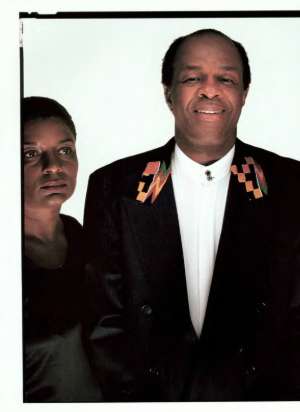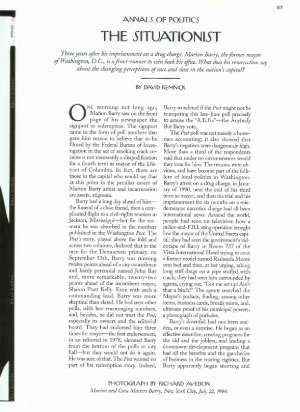The New Yorker, September 5, 1994 P. 86
ANNALS OF POLITICS about ex-Washington D.C. Mayor Marion Barry's bid there to return to office after spending time in prison as result of a police and F.B.I. sting operation in which he was videotaped smoking cocaine. There are those in the capital who would say that at this point in the peculiar career of Marion Barry, arrest and incarceration are assets, stigmata. Barry's downfall had not been sudden, or even a surprise. He began as an effective executive, creating programs for the old and the jobless, and leading a downtown development program that had all the benefits and gaucheries of business in the roaring eighties. Barry's fall was not merely a matter of personal habits. His administration was already tainted in more traditional ways. Barry's narrative, his bid for redemption in the form of election to the city's highest office, is a public matter, and it threatens to split the city of Washington along its most obvious and treacherous divides: race, class, and even, as a kind of subtext of both, skin tone. Unlike New York, with its intricacies of ethnicity and geography, Washington is almost freakishly stark in its divides. The city is two-thirds black. Nearly a third of the city is on some form of public assistance. There are virtually no poor whites. Southeast of the Anacostia River is almost completely black and lower-income, or, less frequently, middle income. Barry appeals to the poor, the lower-middle class, the left out. Jamin Raskin, a professor at American University's Washington College of Law, said that the National Center on Institutions and Alternatives found in 1992 that on any given day in the District of Columbia, 42% of the black men aged 18 to 35 were either in jail or prison, or on probation, or out on parole, or awaiting trial, or being sought on an arrest warrant. "So the fact that Marion Barry has been in jail is not necessarily disqualifying for this community."


